'관리자' 기자의 전체기사
-

Ministry of Culture, Sports and Tourism to offer up to 30,000 won…
2025-03-02 13:48 -
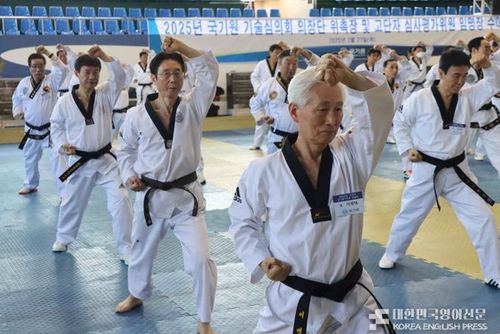
Korea National Flag Institute holds '2025 Highly Qualified Judg…
2025-03-02 13:47 -

Jeonbuk's Olympic Quest! The journey to the 2036 Summer Olym…
2025-03-02 13:45 -

Ministry of Justice launches e-Arrival card in South Korea
2025-03-02 13:43 -
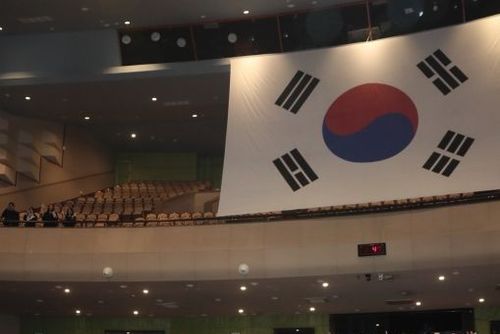
“106th Anniversary 3.1 Commemoration Ceremony” Held ”Resh…
2025-03-02 13:36 -

Agriculture Ministry examines the effectiveness of using bac…
2025-03-02 13:34 -

Financial Services Commission says 1.15 million people ben…
2025-03-02 13:31 -
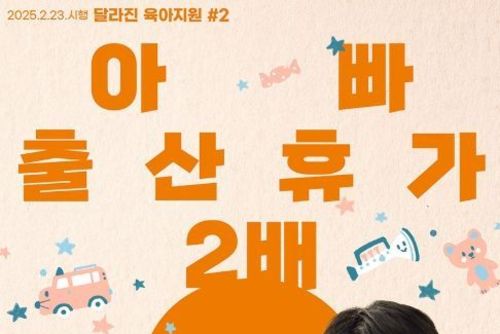
Ministry of Culture, Sports, and Tourism to double spousal m…
2025-03-02 13:29 -
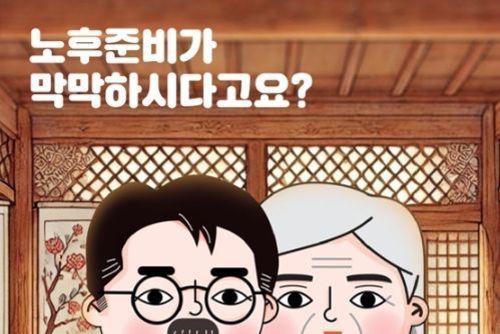
Department of Health and Human Services, Don't know how to…
2025-03-02 12:38 -

The Crisis in Korean Society as Seen through the Eyes of Pr…
2025-03-02 12:32 -

Patent Office Expands Prioritization of Bio, Advanced Robotics…
2025-03-02 12:29 -

Book-reading robot rental service launched, Yuseong-gu…
2025-03-02 12:23 -

Seoul Mayor Oh Se-hoon, ''Make Seoul a Global AI Innovation…
2025-03-02 12:20 -

Ministry of Economy, Security, and Foreign Affairs inaugurates…
2025-03-02 12:14 -

Statistics Korea's National Statistics Portal Enhances Public…
2025-02-28 10:13 -
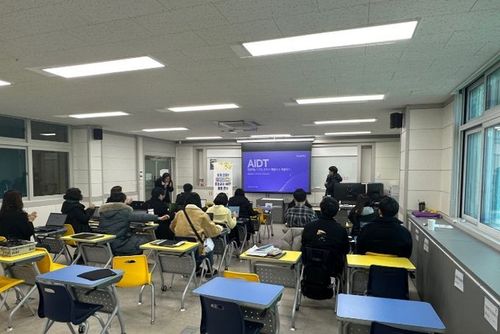
Chungbuk Provincial Office of Education Prepares to Introduc…
2025-02-28 10:10 -

Gyeonggi-do Governor Kim Dong-yeon “I will make Gyeonggi-…
2025-02-28 09:57 -

Leading the charge with mid-sized companies, innovative…
2025-02-28 09:48 -

“Is studying the only talent?” Gyeonggi-do Superintenden…
2025-02-28 09:42 -

Jeonnam Governor Kim Young-rok emphasizes the great pa…
2025-02-28 09:36
-
 Entertainment · Broadcasting
Fair Play Menarini International Award, 29th Award Ceremony marked by waves of emotion
Entertainment · Broadcasting
Fair Play Menarini International Award, 29th Award Ceremony marked by waves of emotion
-
 Entertainment · Broadcasting
The Rose, the first Korean band to perform at Coachella, confirms Seoul concert on August 30 for “Once Upon a WRLD”
Entertainment · Broadcasting
The Rose, the first Korean band to perform at Coachella, confirms Seoul concert on August 30 for “Once Upon a WRLD”
-
 Culture · Events
Incheon Port Authority kicks off the 6th Incheon International Marine Forum in Songdo, Incheon, to look into the future of the global marine industry
Culture · Events
Incheon Port Authority kicks off the 6th Incheon International Marine Forum in Songdo, Incheon, to look into the future of the global marine industry
-
 Culture · Events
Seocho Symphony Orchestra to hold performances in Berlin, Germany, and London, England, commemorating the 80th anniversary of liberation and the 75th anniversary of the Korean War
Culture · Events
Seocho Symphony Orchestra to hold performances in Berlin, Germany, and London, England, commemorating the 80th anniversary of liberation and the 75th anniversary of the Korean War
-
 Culture · Events
Gyeonggi Province to hold its largest job fair for middle-aged and older workers on the 9th. 1,000 jobs to be filled.
Culture · Events
Gyeonggi Province to hold its largest job fair for middle-aged and older workers on the 9th. 1,000 jobs to be filled.
-
 International
Jeju's soul resonates in Rome... Singing of the pain and reconciliation of Jeju 4·3
International
Jeju's soul resonates in Rome... Singing of the pain and reconciliation of Jeju 4·3
-
 International
Seoul City establishes a foothold for K-Beauty and fashion to enter the European market, promoting Milan as a base
International
Seoul City establishes a foothold for K-Beauty and fashion to enter the European market, promoting Milan as a base
-
 Medical · Health
Korean Centers for Disease Control and Prevention: Increase in hand, foot, and mouth disease among infants and young children! Follow preventive measures and maintain good hygiene to stay healthy.
Medical · Health
Korean Centers for Disease Control and Prevention: Increase in hand, foot, and mouth disease among infants and young children! Follow preventive measures and maintain good hygiene to stay healthy.
-
 Medical · Health
Korean Centers for Disease Control and Prevention: Injured patients account for the largest proportion of hospitalized patients; falls are the main cause
Medical · Health
Korean Centers for Disease Control and Prevention: Injured patients account for the largest proportion of hospitalized patients; falls are the main cause
-
 Medical · Health
WHO and international health experts visit Wanju local food production sites
Medical · Health
WHO and international health experts visit Wanju local food production sites
닫기
-
2026-01-29 23:44
11
-
2026-01-28 23:36
No. 6 Reporter
-
2025-12-09 14:30
Seong Ki-sun's Book Launch Event ‘Education in Turmoil’...Seeking Hope for Public Education Through Basic, Relationship, Growth (BRG)
-
2025-11-04 13:48
JP EDU - Hidden Opportunities in Japan: English-Taught International Studies Programs Open Doors to Prestigious Universities
-
2025-10-27 11:03
2026 대한민국영어신문 주니어 영어 기자단 모집































